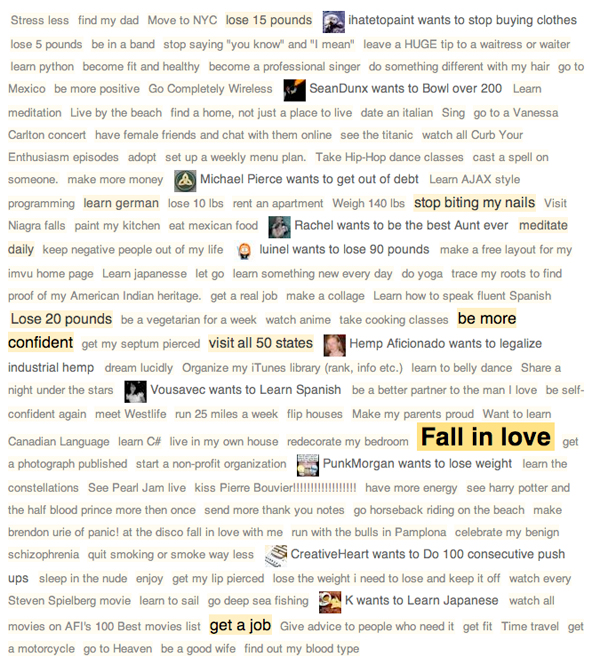The Final Jigsaw Piece For Becoming An Unstoppable Affiliate
I’ve just been reading through Persuasion: The Art of Influencing People by James Borg, and right in the first chapter, there’s something that rings particularly true for affiliate marketers. It’s the dissection of persuasion as an art form by the great philosopher, Aristotle. He died more than 2300 years ago, but if he were alive today, he’d be a total FREAK at designing awesome landing pages. Here’s why.
Aristotle believed that in it’s most simple form, persuasion is the shifting of attitude in your audience from Point A to Point B. Where Point B consists of behaviour that the audience wouldn’t normally engage in.
He spent many years searching for the phantom formula that best induced this persuasion. Predictably, the closest he got was still no guarantee that it would work every time. Aristotle filtered the many factors and narrowed them down to Ethos (ethical appeal), Pathos (emotional attachment) and Logos (logic behind the feeling).
Aristotle believed that the correct application of Ethos, Pathos and Logos would result in the highest probability of persuasion being effective.
Now while the philosopher may be confined to ancient history with his legacy predating Christ, there’s something everlasting about his theory that can be applied to our work as we sit behind screens and pull our hair out.
I think many affiliates neglect the majority of the equation when they design their landing pages, or upload their creatives. There’s no shame in doing so because in reality, it’s damn tough to come up with work that appeals to all three elements of persuasion.
Logos (logic) isn’t hard to conquer. If somebody is unhappily single, it shouldn’t take you a lifetime to turn their heads towards a dating site as a potential cure for their discontent. The logic in meeting new singles, chatting and dating, should be enough to appeal to the senses.
Some affiliates are also great at capturing Pathos (empathy). The flog stands as a hated testament to how effective it can be when you reach out to satisfy the emotional craving. “I made these fantastic changes and because I care about you, let me tell you my secret!” As customers, we love to see similar people turning their lives around and looking all the more happier for it. If the message has been intricately threaded through the right hoops of empathy, persuasion regularly follows.
What a shame for affiliate marketers that persuasion couldn’t rely solely on emotion and logic. Unfortunately, Ethos (the beast of ethics) is there to steal many a torn customer from the jaws of conversion.
It’s not enough to lay down a logical framework for why people should buy your product. It’s also no guarantee if you can produce an emotional attachment to what you’re saying. Ultimately, the element of credibility and “Can I trust this source?” stands between you and I, the affiliates, and an EPC that would make your eyes water.
Ethos is a difficult beast to satisfy. Unfortunately, we tend to gravitate towards some of the less squeaky clean products and services on the market. They are the items that pay out the highest commission, or produce the best results. Creating ethical appeal is difficult when you don’t have the stone cold truth sitting in your corner.
So we do what we can to bend it sideways, to shape it in such a way that our customers are able to establish that acceptance of credibility. Sometimes, it comes back to bite many of our peers in the arse. Stories of false advertising and misleading landing pages are rife. And when you look closely, it’s mostly down to the marketers who were willing to push the envelope dangerously too far in search of Ethos.
They replicate “As seen on…” logos to build a social proof that doesn’t exist. They’ll replicate entire news portals to make a product seem more mainstream than it really is. Bold claims fly around the room like they’re going out of fashion. This search for reputation is often the final frontier separating a good affiliate from the monster profits he’s been searching a lifetime for.
Should we be surprised that many affiliates go too far and pay the price when they break the Ethos for good?
I don’t think so, but we do have to look at alternate ways of establishing that element of trust. If you can establish credibility, affiliate marketing becomes a breeze to conquer. Though as I’m sure you’re already aware, establishing credibility in a sea of crappy products, scammy terms and growing cynicism is no mean feat.
Recommended This Week
Are you signed up to the Stack That Money Forum? It offers coaching from two of the best CPA bloggers in the biz, Mr Green and Mr Stackthatmoney. You’ll find a bunch of follow along case studies and some very generous knowledge dumps which you’d have to be an absolute muppet not to take value from. More info here.
If you’re a new reader, please add me to your RSS. Also follow me on Twitter Love you long time. Thanks for reading.


Wow! thanks for sharing this article.